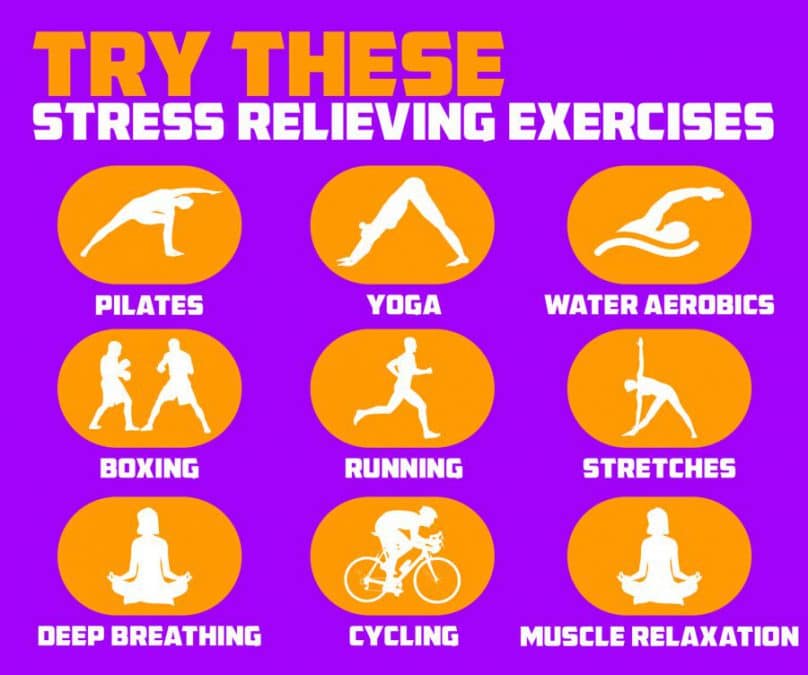Stress manifests itself both mentally and physically, effecting everyone in some form. This year, the International Stress Management Association recognizes International Stress Awareness Week Nov. 4 through 8.
Citizen Potawatomi Nation Behavioral Health Department psychologist Shannon Beach, Ph.D., described a stressor as “anything that you spend time worrying about.”
“I don’t know that we necessarily think about something as stress until we’ve spent more time worrying about it than we think is reasonable,” he said. He also separates stress and anxiety as something manageable versus something treatable, respectively.
FireLake Wellness Center personal trainer Sarah Lawerance sees clients dealing with burdens on a daily basis.
“Everything seems to be faster paced, more stressed in general,” she said. “When they come in, our first thing is we got to figure out what their goals are.” However, reducing those pressures often does not appear as one of their top three reasons for coming to the gym, outranked by weight loss, building muscle mass and more.

According to Dr. Beach, worries about finances and school are some of the most common stressors addressed in counseling, along with relationships, familial issues, and work. He said in modern society, people often adjust to living with a high level of pressure over time without realizing it.
“When we’re more self-aware, I think that’s really helpful in knowing how to start setting those limits, knowing how to set boundaries, and knowing what the stressors are that we’re going through,” Dr. Beach said. “A lot of times stressors become stressors because we don’t really realize everything that’s going on until multiple things start piling up.”
Some common ways they manifest themselves physically include muscle tension, shortness of breath, weight fluctuation, hair loss, heightened blood glucose levels and trouble sleeping. Emotionally, it can strain relationships as well as cause overeating and mental exhaustion. Each person experiences stress and manages it in a unique way. Relieving some of it requires purposeful action.
“Everybody goes through peaks and valleys with stress and life, but with exercise, nutrition, and your health as a whole, it has to be a lifestyle change,” Lawerance said.
Lawerance enjoys helping clients find a comfortable way to reduce body tension and improve their day-to-day well-being. She says physical activity plays an important role in recovery.
“Our body is not like a car. With a car, you can be on empty, and you can still go a hundred miles an hour,” she said. “Your body is like a stair step. You don’t get one night of sleep, your stress level is high. So, your body just starts stair-stepping in the downward spiral instead of in a positive way.”
Combating tension
Focusing on the present circumvents worry about the future and puts things in perspective. Dr. Beach encourages patients to develop their self-awareness and establish limits.
“Coming from a mindfulness perspective, that’s what everything’s really about is finding that way to balance things so that we can get everything done and then focusing on the present,” he said.
“We all need to know how to recognize what’s going on in ourselves that we need to try to use some introspection.”
Exercising forces people to concentrate on the moment as well as achieve a healthy tiredness for a better night’s sleep. Lawerance believes everyone benefits from 30 to 45 minutes of cardio a few days a week and emphasizes breathing and stretching as a way to calm down.
“Slow down, take a breath, look at the situation and take care of you,” she said. “Because most of the time you’re taking care of somebody else. If you’re not taking care of yourself first, you’re not going to be able to take care of your grandkids, your kids, your nieces, nephews, your parents or whatever the case may be.”
Consistent exercise and stress reduction complement each other. Lawerance’s clients report reduced tension, improved mood and a lighter emotional weight after beginning a routine at the gym, whether that includes a yoga class, cardio, water aerobics, running or boxing.
“It’s because they’ve got a lot of stress, and now, they start their day off right. They come in here. They have a good attitude when they go to work, and their exercise is out of way, and their stress level seems to be less by the end,” she said.
Both Dr. Beach and Lawerance recognize individuals’ differences, and Dr. Beach sometimes recommends charity work to help patients focus on the task at hand.
“We’re getting involved in something that helps take our minds away from these future-oriented worries and putting us in the present with activities that are helping,” he said. “It has a definite altruistic component but also something that we do to help ourselves as well.”
Both recommend journaling as a means to clear the mind by creating a to-do list or scratching out worries and trials on a piece of paper. Dr. Beach always carries around a tiny notebook.
“With each of those notebooks, when I open it up, on the first page I write the same question. And every one says, ‘How can I learn from this?’ I think really being able to ask ourselves that question regardless of what happened to us today … can really be helpful in demonstrating what we’ve been through throughout the day that we don’t necessarily think about sometimes,” he said.
On difficult days, switching up exercise or stress management routines brings the focus back to the present along with the need for concentration. Lawerance calls it “flipping the script.”
“I think we get wrapped up in life in general. … We’re trying to control everything,” she said.
“All you can control is yourself and the things in your environment.”
For more information about CPN’s Behavioral Health services, visit cpn.news/bh. FireLake Wellness Center is open Monday through Thursday, 5 a.m. to 7 p.m.; Friday, 5 a.m. to 5 p.m.; Saturday, 8 a.m. to noon; and closed Sundays. Visit cpn.news/wellness to see a list of classes and contact information.
